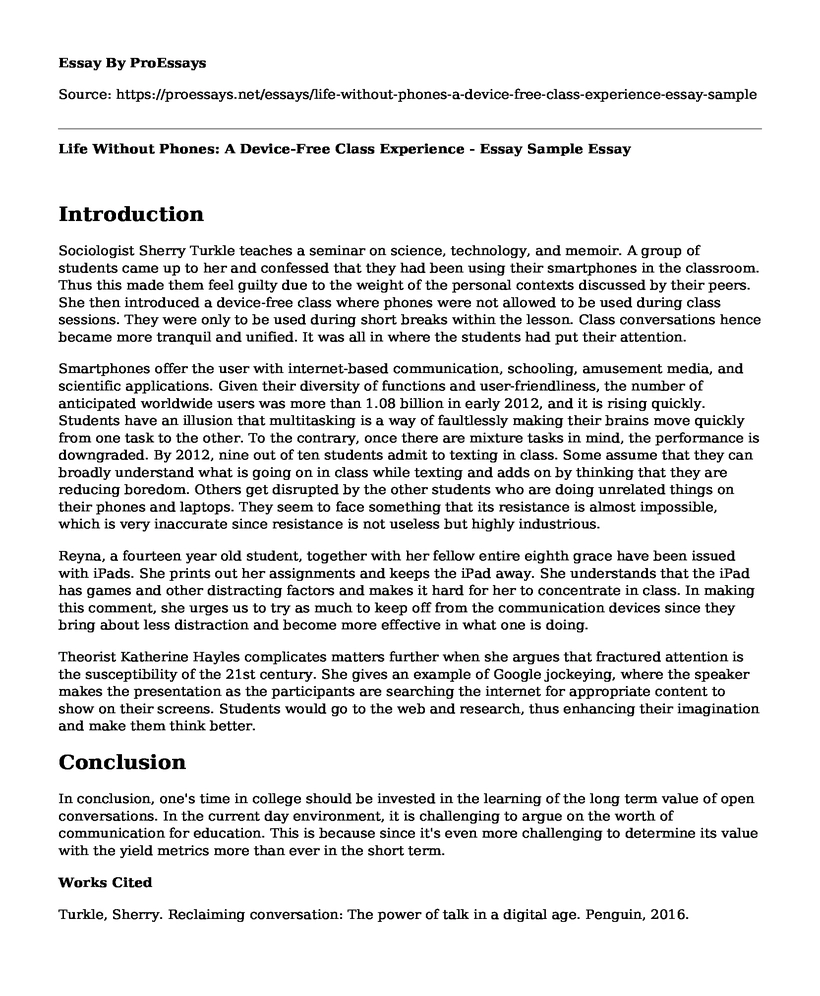Introduction
Sociologist Sherry Turkle teaches a seminar on science, technology, and memoir. A group of students came up to her and confessed that they had been using their smartphones in the classroom. Thus this made them feel guilty due to the weight of the personal contexts discussed by their peers. She then introduced a device-free class where phones were not allowed to be used during class sessions. They were only to be used during short breaks within the lesson. Class conversations hence became more tranquil and unified. It was all in where the students had put their attention.
Smartphones offer the user with internet-based communication, schooling, amusement media, and scientific applications. Given their diversity of functions and user-friendliness, the number of anticipated worldwide users was more than 1.08 billion in early 2012, and it is rising quickly. Students have an illusion that multitasking is a way of faultlessly making their brains move quickly from one task to the other. To the contrary, once there are mixture tasks in mind, the performance is downgraded. By 2012, nine out of ten students admit to texting in class. Some assume that they can broadly understand what is going on in class while texting and adds on by thinking that they are reducing boredom. Others get disrupted by the other students who are doing unrelated things on their phones and laptops. They seem to face something that its resistance is almost impossible, which is very inaccurate since resistance is not useless but highly industrious.
Reyna, a fourteen year old student, together with her fellow entire eighth grace have been issued with iPads. She prints out her assignments and keeps the iPad away. She understands that the iPad has games and other distracting factors and makes it hard for her to concentrate in class. In making this comment, she urges us to try as much to keep off from the communication devices since they bring about less distraction and become more effective in what one is doing.
Theorist Katherine Hayles complicates matters further when she argues that fractured attention is the susceptibility of the 21st century. She gives an example of Google jockeying, where the speaker makes the presentation as the participants are searching the internet for appropriate content to show on their screens. Students would go to the web and research, thus enhancing their imagination and make them think better.
Conclusion
In conclusion, one's time in college should be invested in the learning of the long term value of open conversations. In the current day environment, it is challenging to argue on the worth of communication for education. This is because since it's even more challenging to determine its value with the yield metrics more than ever in the short term.
Works Cited
Turkle, Sherry. Reclaiming conversation: The power of talk in a digital age. Penguin, 2016.
Cite this page
Life Without Phones: A Device-Free Class Experience - Essay Sample. (2023, Feb 15). Retrieved from https://proessays.net/essays/life-without-phones-a-device-free-class-experience-essay-sample
If you are the original author of this essay and no longer wish to have it published on the ProEssays website, please click below to request its removal:
- Biometric Gait Authentication for Smart Phone on Hand Paper Example
- Robotic Process Automation - Essay Sample
- Paper Example on Facebook: Social Media Giant Leveraging Web-Based Technology
- Essay Sample on Artificial Intelligence: Revolutionizing Healthcare, But What Are the Risks?
- VR Tech: A New Education Tool for Schools & Distance Learning - Research Proposal
- Essay Sample on Fossil Fuel Energy: Global Impact, Concerns & Solutions
- The Virtual Reality Museum - Report Example







